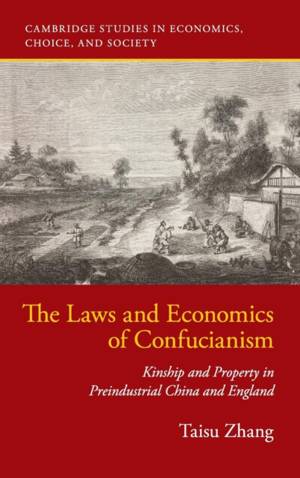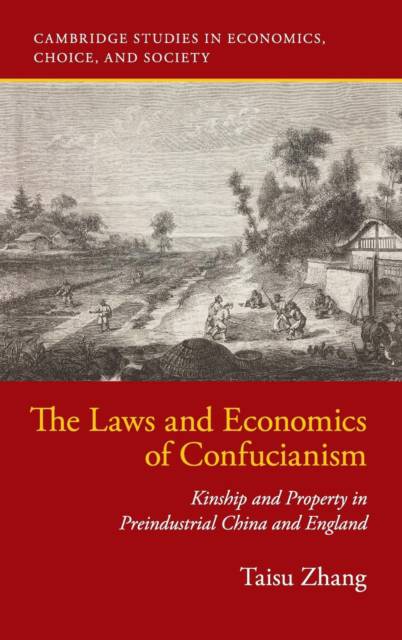
- Afhalen na 1 uur in een winkel met voorraad
- Gratis thuislevering in België vanaf € 30
- Ruim aanbod met 7 miljoen producten
- Afhalen na 1 uur in een winkel met voorraad
- Gratis thuislevering in België vanaf € 30
- Ruim aanbod met 7 miljoen producten
Zoeken
The Laws and Economics of Confucianism
Kinship and Property in Preindustrial China and England
Taisu Zhang
€ 190,45
+ 380 punten
Uitvoering
Omschrijving
Tying together cultural history, legal history, and institutional economics, The Laws and Economics of Confucianism: Kinship and Property in Preindustrial China and England offers a novel argument as to why Chinese and English preindustrial economic development went down different paths. The dominance of Neo-Confucian social hierarchies in Late Imperial and Republican China, under which advanced age and generational seniority were the primary determinants of sociopolitical status, allowed many poor but senior individuals to possess status and political authority highly disproportionate to their wealth. In comparison, landed wealth was a fairly strict prerequisite for high status and authority in the far more 'individualist' society of early modern England, essentially excluding low-income individuals from secular positions of prestige and leadership. Zhang argues that this social difference had major consequences for property institutions and agricultural production.
Specificaties
Betrokkenen
- Auteur(s):
- Uitgeverij:
Inhoud
- Aantal bladzijden:
- 318
- Taal:
- Engels
- Reeks:
Eigenschappen
- Productcode (EAN):
- 9781107141117
- Verschijningsdatum:
- 12/10/2017
- Uitvoering:
- Hardcover
- Formaat:
- Genaaid
- Afmetingen:
- 163 mm x 242 mm
- Gewicht:
- 566 g

Alleen bij Standaard Boekhandel
+ 380 punten op je klantenkaart van Standaard Boekhandel
Beoordelingen
We publiceren alleen reviews die voldoen aan de voorwaarden voor reviews. Bekijk onze voorwaarden voor reviews.











